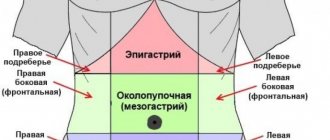body .attr-article__date{ background: none; padding: 0; }
NEAD EAD SEAD South Administrative District South-Western Administrative District CJSC Central Administrative District SZAO Northern Administrative District 01 02 03 05 06 07 08 09 1 0 1 1 1 2 14 18 15 16 17 Babushkinskaya Prospekt Mira Pervomaiskaya Baumanskaya Paveletskaya Teply Stan Shipilovskaya Prague Academic University Barrikadnaya River Station Oktyabrskoye Bratislava Taganskaya Academician Yangelya October Field
The call center is open 24 hours a day
Call me back Ambulance 24/7
Date of publication: 04/01/2016
Vomiting is a reflex eruption of the contents of the stomach and, in some cases, the duodenum through the mouth.
Vomit is usually formed from food debris, stomach acid and mucus, but it may also contain bile, blood and pus. Vomiting blood is a really serious symptom.
More about vomiting
Mechanism and nature of vomiting
Vomiting is a reflex eruption of the contents of the stomach (less commonly the duodenum) through the mouth. Sometimes the amount of vomit is so large that it comes out through the nasopharynx. The mechanism of vomiting is quite simple. It is caused by contraction of the abdominal muscles and the simultaneous closure of part of the stomach. First, the body of the organ relaxes, then the entrance to the stomach opens. The entire gastrointestinal tract reacts to changes in work and prepares for the release of vomit. Once the vomiting center located in the medulla oblongata receives the necessary signal, the esophagus and oral cavity expand, followed by the eruption of food/body fluids.
Content:
- Mechanism and nature of vomiting
- Possible reasons for development
- What diseases cause vomiting of blood?
- How to provide first aid?
- Treatment and prevention
The field of medicine that deals with the study of vomiting and nausea is called emetology.
How to recognize vomiting? A few hours or minutes before the eruption of vomit, a person feels nausea, rapid breathing, involuntary swallowing movements, and increased production of tears and saliva. Vomit consists not only of food residues that have not had time to be fully absorbed by the body, but also gastric juice, mucus, bile, and, less often, pus and blood.
Causes of vomiting blood after alcohol
If a person vomits blood after drinking alcohol, this is an extremely alarming symptom, indicating internal bleeding, which can be mild or intense.
Main symptoms of bleeding:
- increase or sharp decrease in blood pressure;
- noise and pain in the head;
- fainting, weakness;
- increased dryness in the mouth, severe thirst;
- increased sweating;
- attacks of nausea;
- sharp painful cramps in the abdomen;
- chills;
- tachycardia;
- general weakness, malaise, drowsiness.
The first sign of an internal problem is changes in a person's appearance. He becomes excessively pale , he is bothered by increased sweating and constant weakness. If bleeding occurs in the digestive system, an additional symptom is a change in stool - it becomes blackish in color and has a runny consistency.
In most cases, if a person vomits blood after drinking alcohol, this is due to mechanical injuries to the digestive tract. But the exact cause can only be determined after examination.
Possible reasons for development
The most common cause of vomiting is food/alcohol/drug/drug poisoning. The mechanism of eruption of stomach contents can also work in a number of infections, irritation of the abdominal cavity, and inflammatory diseases of the gastrointestinal tract. Sometimes the body independently releases dangerous substances or stops functioning normally under the influence of severe psychological stress/nervous system disorders.
If blood is found in the vomit, it means bleeding has developed in one of the parts of the body. Even if you notice one small blood clot, you should consult a doctor immediately. The amount of erupted blood may not correspond to the real state of affairs. The only thing you should focus on is the shade and structure of the biological fluid. Bright scarlet blood indicates heavy “fresh” bleeding, but clots of dark purple blood indicate a small but prolonged amount of blood loss. Upon contact with gastric juice, the blood coagulates and acquires a dark tint.
Vomiting blood poses a serious threat to human health. As soon as you notice a symptom, call an ambulance.
Providing emergency assistance
Vomiting blood after drinking alcohol is a dangerous complication that poses a threat not only to the health, but also to the life of the drinker. But don’t panic, because thanks to this protective reflex, the body tries to get rid of the toxic compounds released by alcohol. What to do in such a situation – it is very important to provide first aid to the victim in a timely manner.
If possible, the victim should be placed in bed or on a flat surface; to improve blood circulation, he should be covered with a warm blanket. A person should not be left alone, because during a vomiting attack he may choke. For the same reason, it is best not to place him on his back.
To accelerate the elimination of toxic products of the breakdown of ethyl alcohol, the patient needs to take activated carbon, Polysorb or any other adsorbent . Activated carbon is taken in the proportion of 1 tablet for every 10 kg of weight.
It is necessary to ensure plenty of drinking by giving him still water . This will help prevent water-salt imbalance. The best option would be Regidron pharmaceutical solution or still mineral water, for example, Essentuki-17. But you need to remember that you should not use it if you have a duodenal or stomach ulcer.
When vomiting with bloody spots, eating food is strictly not recommended, as this can only worsen the patient’s well-being.
What diseases cause vomiting of blood?
Vomiting blood may indicate:
- mechanical damage to the mucous membrane of the esophagus, stomach, throat, other internal organ or cavity;;
- varicose veins of the esophagus;
- ulcer, cirrhosis, acute gastritis;
- oncological diseases, regardless of nature;
- alcohol poisoning;
- use of medications that adversely affect the mucous membrane of internal organs;
- pregnancy (bloody vomiting is dangerous for both mother and baby).
Cirrhosis and stomach ulcers
Why vomits blood after drinking alcohol - one of the most common causes is a duodenal or stomach ulcer. As a result of frequent consumption of alcoholic beverages in large volumes, the composition of gastric secretions changes with an increase in the level of hydrochloric acid.
As a result of the disease, eating any food is accompanied by severe painful cramps in the upper abdomen. The patient's appetite gradually worsens, he regularly suffers from attacks of heartburn and nausea.
Alcoholic drink causes damage to blood vessels, which begin to burst. Perforation of the ulcer is accompanied by profuse bleeding. This is what causes bloody spots to appear.
Vomiting attacks with bleeding can be a consequence of cirrhosis of the liver. This disease is characterized by a significant deterioration in the functioning of the liver; normal blood circulation in the internal organs is disrupted, causing increased pressure in the blood vessels. This causes injury, damage and subsequent bleeding.
How to provide first aid?
Make sure that the vomit contains blood and not colored food. Often, a patient may mistake chocolate eaten the day before for brown blood clots and make a lot of premature diagnoses. Another false reason for worry is blood from the nose or mouth getting into the vomit. Perhaps a vessel in your nasal passages burst or you recently had a tooth removed, leaving a bloody wound in its place.
You can stop bleeding from the nose/oral cavity on your own. If you don't know what to do or the volume of blood released looks scary, consult a doctor.
The main thing is to act quickly and judiciously. Call an ambulance, calm the patient and place him on a flat surface. Raise your legs slightly or turn the person on their side. Focus on his condition and comfort; if possible, go to the hospital yourself. Monitor your pulse/pressure periodically and record the results so you can give them to your doctor later. Provide the victim with unrestricted access to drinking water. Help him take a few sips to stay hydrated.
Never leave the victim unattended. If an attack of vomiting finds you alone, ask relatives or neighbors to be nearby until the ambulance arrives. Vomiting can resume at any moment, which is fraught with total weakening, loss of consciousness, during which the patient may simply choke. If you witness an attack, do not try to give the victim medication without a doctor’s prescription. Do not force the person to eat, or artificially induce another bout of vomiting in order to completely cleanse the body. The best thing you can do is get the victim to the hospital as soon as possible.
Do not rely on chance or self-recovery. Failure to see a doctor in a timely manner can cost your life, so do not risk your health and strictly follow the instructions of a specialist.
Best materials of the month
- Coronaviruses: SARS-CoV-2 (COVID-19)
- Antibiotics for the prevention and treatment of COVID-19: how effective are they?
- The most common "office" diseases
- Does vodka kill coronavirus?
- How to stay alive on our roads?
Effective treatments
Therapy for vomiting blood after drinking alcohol is prescribed only on the basis of laboratory tests , after gastroscopy and other diagnostic measures.
The main methods of treating vomiting attacks with bleeding:
- balloon tamponade with a probe;
- drug therapy through vasodilators and vasoconstrictors;
- cleansing the cavity of the digestive organs from blood clots by washing;
- endoscopic treatment methods - ligation, sclerotherapy, obliteration.
In the most severe and dangerous cases, treatment is carried out through surgery . Among the most effective surgical treatment techniques, preference is given to vein suturing, transsection of the esophagus, and portosystemic shunting.
Diet
You will have to not only forget about alcohol, but also completely reconsider your diet. At first, it is better for the patient not to eat. The most important thing now is to drink plenty of fluids to prevent dehydration. It is useful to drink teas based on calendula, rosehip or chamomile. They have a calming effect, relieve inflammation and help you recover faster from illness.
Usually, significant relief occurs within 2-3 days. This is only if the patient observed bed rest and followed all the doctors’ orders. Properly selected food will help replenish the supply of nutrients and will not irritate the esophagus and stomach. During this period, it is important not to overload the liver and pancreas. All fried and fatty foods are completely excluded. You should also not eat marinades, preserves, raw vegetables and fruits, as well as red meat. Food should be soft, pureed, and at a comfortable temperature.
It is best to start with weak tea and jelly, gradually moving on to liquid porridge and diluted chicken broth. Next, move on to chopped chicken pulp and soft-boiled eggs. It is recommended to drink vitamin C to strengthen the body. After complete recovery, you will need to strictly follow a diet and regularly visit a gastroenterologist. A specialist will help you choose the right diet for the future.
Classification of internal bleeding
Categories of symptoms vary . The danger of hangover syndrome is dehydration of the body, leaching of nutrients necessary for health and well-being.
Bleeding with a volume of 200-400 ml is expressed by:
- headache;
- feeling cold;
- general malaise;
- physical fatigue;
- dryness and unpleasant odor in the mouth.
Dangerous bleeding manifests itself as:
- weakness throughout the body;
- abdominal pain;
- noise/ringing in the ears;
- disturbances in the heartbeat rhythm;
- frequent dizziness;
- increased blood pressure;
- sweating, from general malaise.
The voice changes, becomes hoarse, quiet, a little hoarse, diarrhea is observed - black stools with a pungent odor. Blood clots that come out along with the contents of the stomach are dark in color. In case of intense bleeding, medical attention is needed, since it is impossible to stop the process on your own.
Detection of blood clots - what to do
In case of severe intoxication, treatment must be carried out under medical supervision . The time for complete recovery depends on alcohol intoxication or the duration of the binge, since therapeutic intervention provides for recovery from a hangover. A person who likes to raise a glass to the health of loved ones needs to learn to control the amount of wine or champagne they drink. Self-control will help you avoid serious and sometimes irreparable health problems.
First aid
After a long binge, a situation arises accompanied by unpleasant manifestations of weakness, dizziness, loss of coordination of movements, uncontrolled emptying of the stomach - the first thing you need to do is call an ambulance. Then:
- Place the patient on a flat bed.
- If you feel cold, cover with a blanket.
- Reduce hangover syndrome by giving activated charcoal based on body weight.
- Every quarter of an hour, turn over to the other side.
- You cannot leave the patient alone; he may choke on vomit.
- Give only clean water to drink, without gas.
- Before the doctors arrive, measure and record your heart rate.
- It is prohibited to feed the patient before examination by doctors. The condition may get worse.
In the hospital, experienced doctors prescribe complex diagnostics and a number of laboratory tests.











